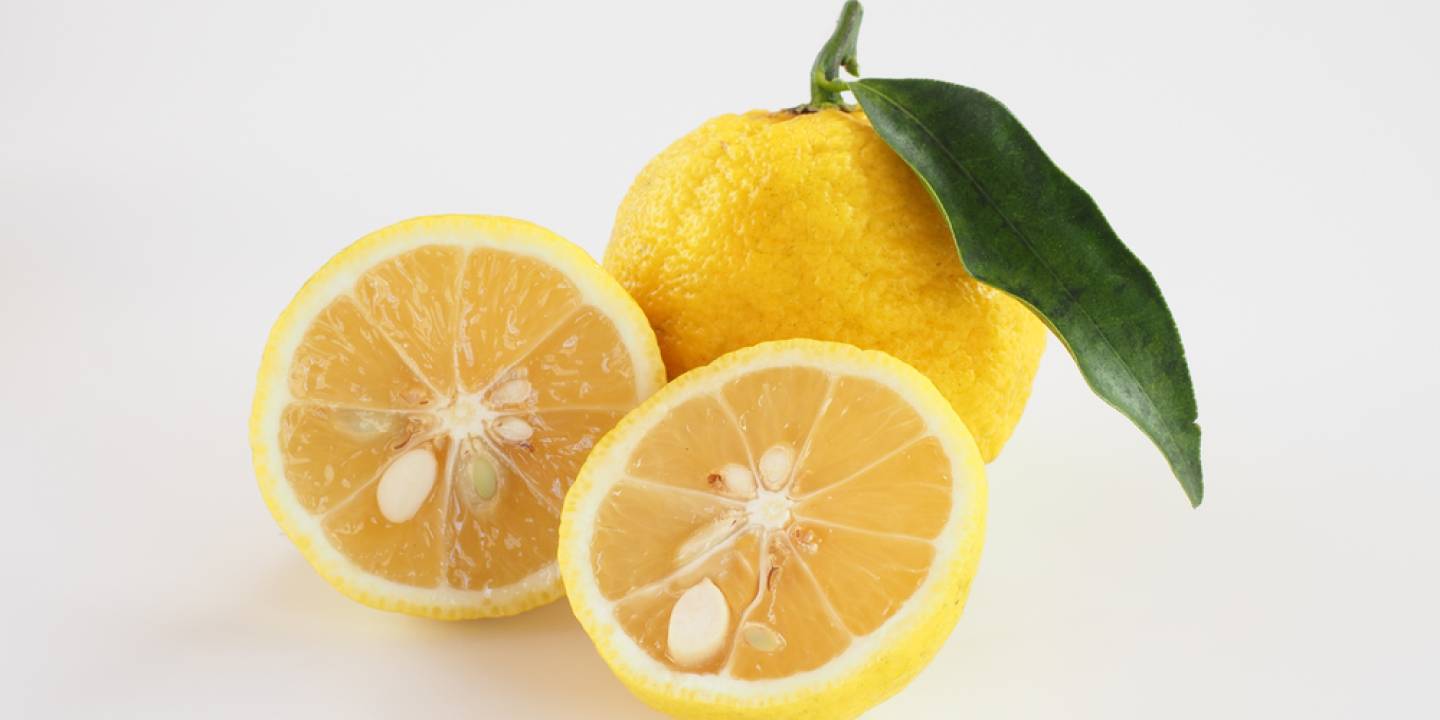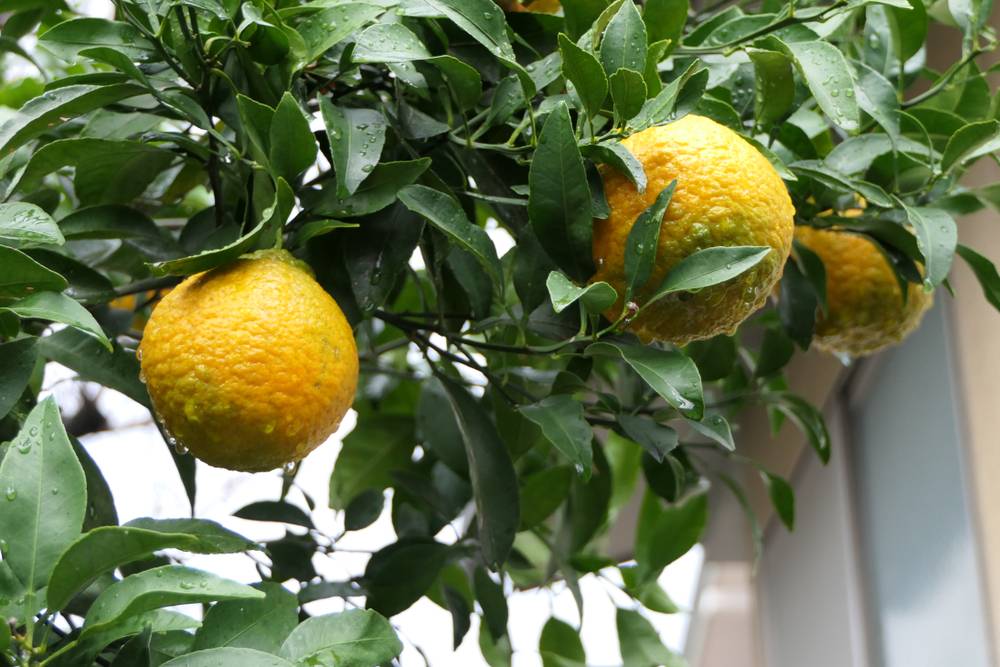We spoke to Julie Barnes, one of our citrus gurus at Treatt, to tell us all about this unique fruit which is on the rise.
Q: What is yuzu?
Yuzu (pronounced ‘yoo zoo’) is a hybrid ‘superfruit’ from East Asia, originating from central China and Tibet before being introduced to Japan and Korea around the 7th or 8th century where it is still cultivated today.
It looks like a plump, small lemon with uneven thick skin, and its large white seeds make it harder to remove segments of flesh as you might with an orange. Also known as Japanese citron, yuzu has for centuries featured in East Asian cuisine, beauty and traditional medicine.
Q: What does yuzu taste like?
This unique fruit has a floral fragrance and tastes at the bitter end of the citrus spectrum, featuring a citric sharpness and sweet-n-sour tartness that is good to balance out with pairings such as lighter teas, florals, and lighter sweet flavours, although it has savoury applications too.
As with all citrus fruits, the zest is rich with essential oils and intensely aromatic but unlike other citrus, yuzu produces less liquid when juiced – partly due to it being seed dominated.
Q: What applications and industry trends are we seeing with yuzu?
Yuzu is very much part of what’s termed ‘next generation citrus’ along with flavours like blood orange, mandarin, pomelo, calamansi and is making something of a comeback due to its superfood connotations as a result of the rise in consumer health and wellbeing interest following Covid.
While it is a niche market, as a flavour, yuzu has seen a 22% increase from 2019 to 2020 across food and beverage (source Innova). Its popularity appears to be increasing; for some it’s a fairly recent discovery despite its ancient origins.
Citrus remains one of the top flavours globally and we tend to see unique and rare flavours like yuzu combined with more familiar flavours to create a premium price point beverage with an exotic twist, such as blackberry and yuzu, lime and yuzu – giving consumers the chance to travel through their taste buds if you like. We’re seeing an increasing presence in premium tonics, for example.
Since yuzu is more sour, pairing with things that are familiar and sweet or light like pear works well. Drinks from matcha tea to cocktails work perfectly with yuzu. As well as blends and flavours using yuzu, expect to see continued innovation with such exotic ingredients, with yuzu making its way into commercial kitchens for more cooking creations. It will be interesting to see how it makes its way into the supply chain. The health connotations also make yuzu very desirable.
Q: What are the health benefits of yuzu?
In Japan there is a long history of bathing with yuzu fruit in hot springs, especially during the winter solstice, to release its healing properties which are said to guard against colds, warm the body and relax the mind, as well as make your skin softer. It’s also renowned for its superfood qualities, packed with three times more vitamin C than lemon and antioxidants.
How Treatt can support your formulations
We keep one step ahead of trends, so that we can respond to our clients’ needs. This is why we already have a TreattClear Yuzu WONF, as part of our water-soluble range of ingredient offerings in our Citrus Extracts range. It is ready to be blended directly into any beverage application to help to create that perfectly balanced flavour. We work very closely with our customers to find the best solutions to hit the spot with consumers.
Julie Barnes is Citrus, Fruit and Vegetable Category Manager at Treatt.
To speak to one of the team, email enquiries@treatt.com or find out more about our solutions.
Sources:
Global Data
Innova
Related posts:
Top Trends for the Year Ahead
Latest Citrus Update

